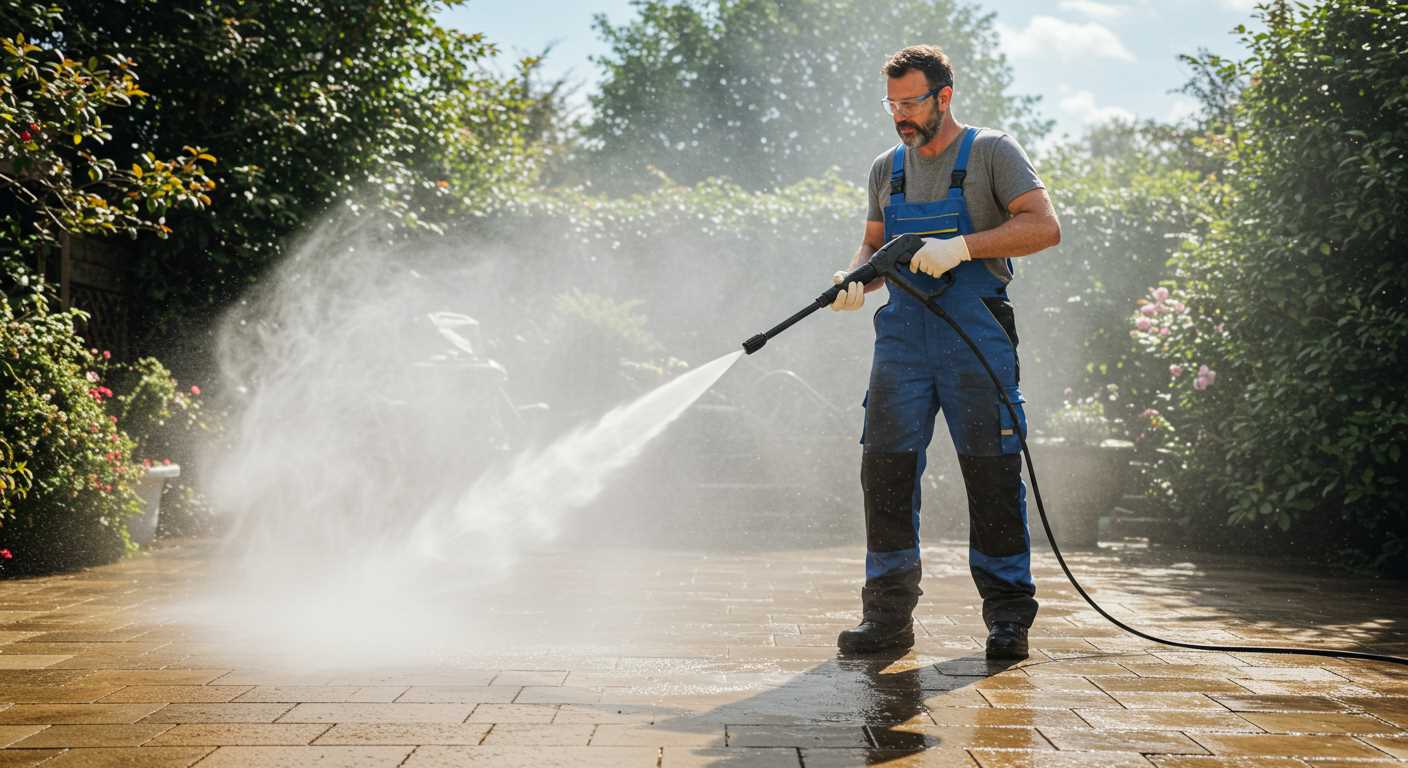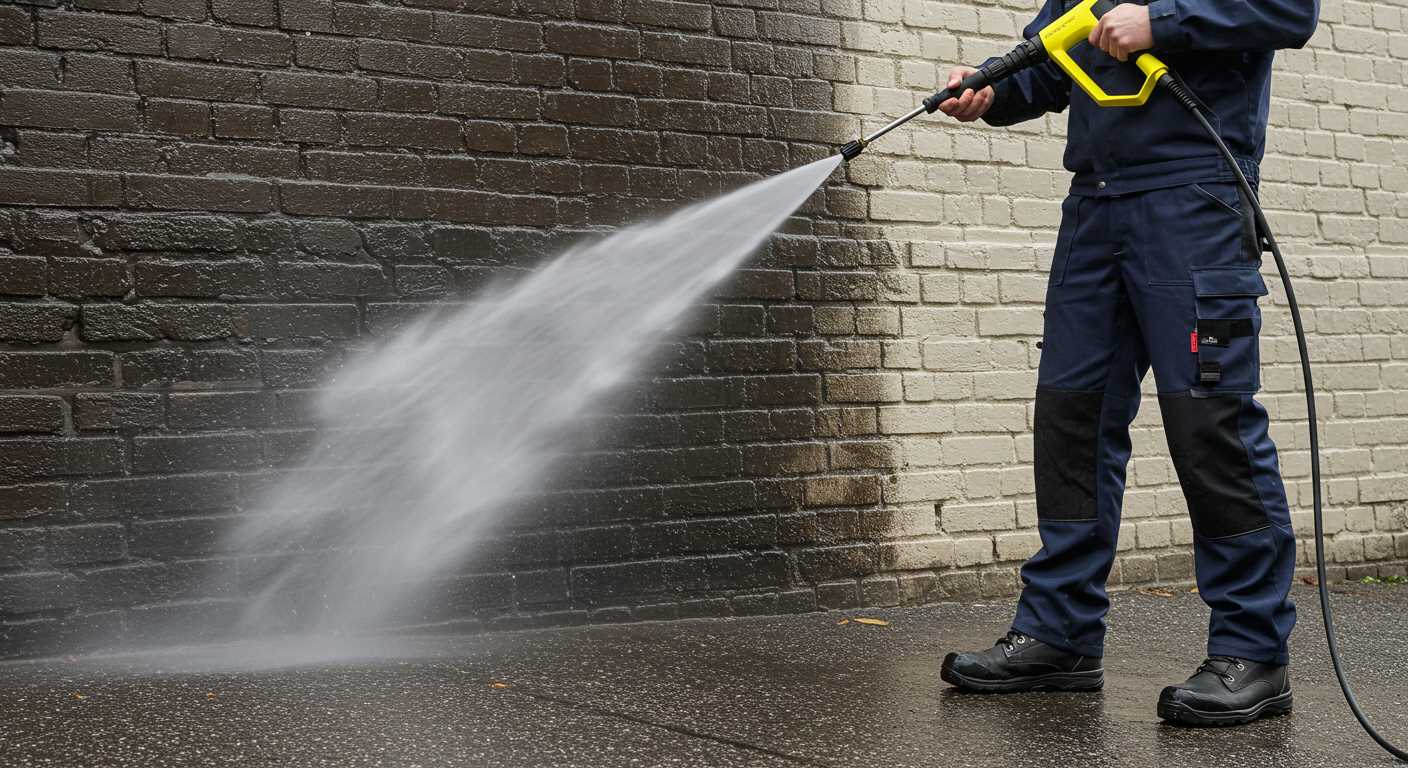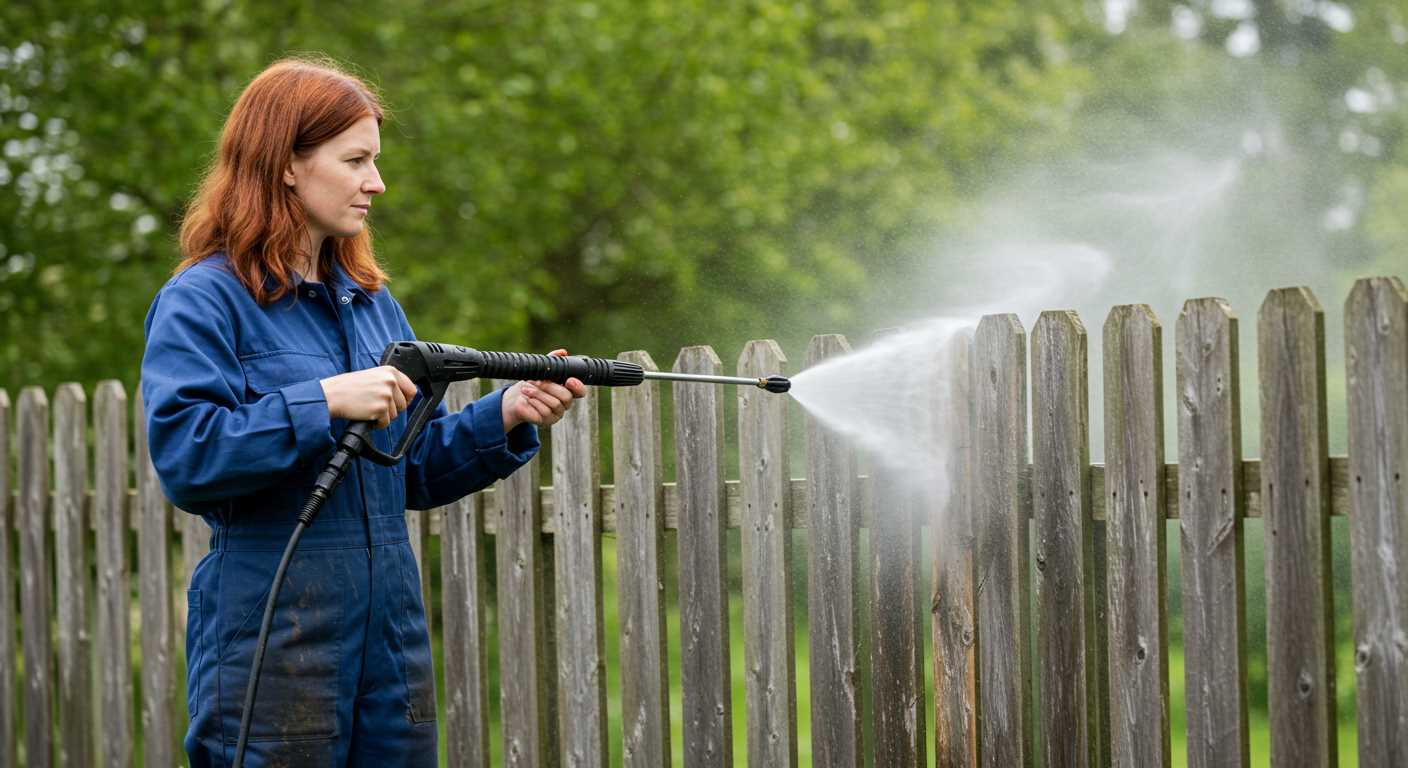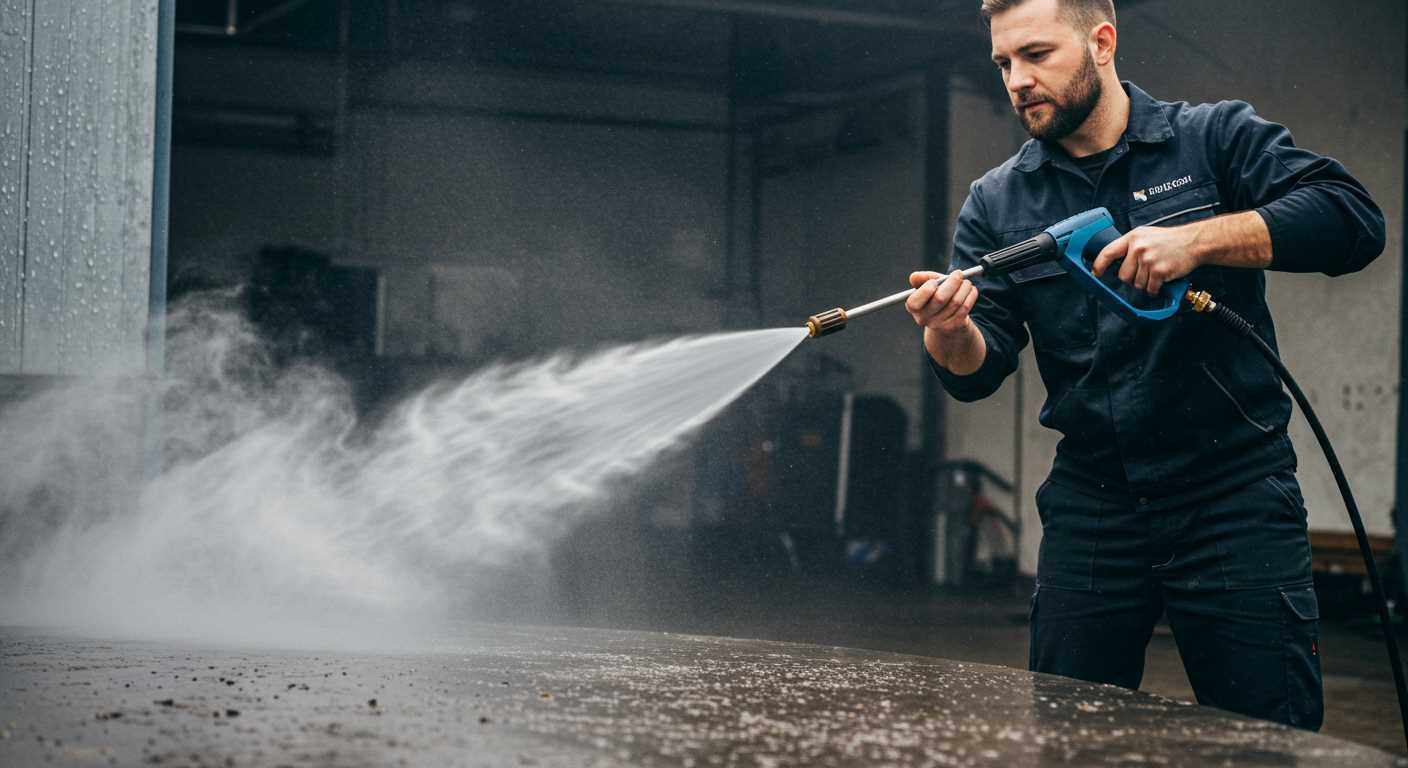

Immediate attention to temperature and fluid levels is paramount to avoiding damage to your cleaning machinery’s motor component. Operating beyond the specified temperature range can lead to materials expanding beyond their intended limits, resulting in fractures or other forms of impairment.
Regularly inspect seals and connections. Leaks can indicate an improper seal, allowing air to enter the circulation system, which can introduce pressure spikes that are detrimental to integrity. These leaks can also compromise efficiency, placing additional strain on the entire apparatus.
Routine maintenance is non-negotiable. Neglecting to replace worn parts can adversely affect performance, causing undue stress on the motor assembly and increasing the likelihood of disruption. Make it a habit to consult the manufacturer’s guidelines for maintenance intervals.
Storing equipment in an unsuitable environment can lead to material fatigue. Extreme cold can cause fluids to freeze, while excessive heat can degrade vital components. Ensure your machinery is kept in a controlled climate to extend its lifespan and maintain operational effectiveness.
Lastly, always use recommended cleaning solutions. Harsh chemicals can corrode internal elements, weakening structural components over time. Stick to what is advised in the operational manual for optimal performance and longevity.
Factors Leading to Pump Failures
To prevent failures, maintaining a consistent flow of clean water is imperative. Any debris entering the system can compromise the structure. Regularly check for blockages and ensure that the water source is free from contaminants.
Operating with insufficient water intake can escalate the risk of overheating. Always ensure that the inlet filter is clean and the water supply matches the manufacturer’s specifications.
Environmental Considerations
Extreme temperatures, both hot and cold, may severely affect the integrity of components. Storing equipment in a controlled environment when not in use prolongs its lifespan and prevents fractures caused by freezing or heat expansion.
Maintenance Practices

Routine checks on seals and connections are necessary to avoid leaks that could lead to pressure inconsistencies. Investing time in proper upkeep, including lubrication and inspection, pays off in the long run.
| Issue | Effect |
|---|---|
| Debris in water | Potential structural damage |
| Insufficient water supply | Overheating and cracks |
| Extreme temperatures | Material expansion or contraction |
| Poor maintenance | Leaks and pressure loss |
Understanding the Role of Pump Materials
Choosing the right materials in the construction of the water propulsion unit is paramount for durability. Components made from low-quality substances are prone to wear and damage under high stress. This can lead directly to fractures or failures. Therefore, favourite materials include brass and stainless steel, known for their resilience and longevity.
Key Material Attributes
- Corrosion Resistance: High-quality metals withstand harsh conditions, including exposure to water and cleaning agents.
- Temperature Tolerance: Parts must endure high temperatures without deforming, thus materials with high melting points are preferable.
- Strength-to-Weight Ratio: The ideal materials balance strength with manageable weight, making assembly and maintenance easier.
Inspecting the material specifications during purchase can prevent future issues. Opt for models that highlight their use of high-grade metals and polymers. In my experience, investing in superior components often results in fewer maintenance hassles and extended operational life.
Composite Materials
Some units incorporate composite materials, which can offer reduced weight and enhanced chemical resistance. However, these must be evaluated carefully as some composites may not withstand high pressures. Always consider the manufacturer’s guidelines and testing data.
In summary, understanding the composition of crucial components directly correlates with performance and longevity. I recommend assessing these factors before making any purchase to avoid costly repairs and enhance user satisfaction.
Impact of Freezing Temperatures on Pump Integrity
To protect your high-pressure cleaning unit from damage due to low temperatures, I recommend ensuring that all water is drained from the system after use, especially during winter. Any residual liquid left in the components can freeze, leading to ruptures and other forms of deterioration.
In regions prone to cold spells, consider storing the equipment indoors when not in use. If it must remain outside, insulating covers can offer significant protection against freezing. Additionally, using antifreeze solutions specifically designed for cleaning equipment will safeguard internal mechanisms during harsh weather.
Be aware that the materials used in your device’s construction can influence susceptibility to frost-related issues. Aluminium alloy and plastic parts are generally more resilient than some composite materials, though they don’t guarantee immunity. Regular inspections for signs of stress or weakness after severe cold snaps are essential to maintaining longevity.
Lastly, remember to test functionality before each use in cold conditions. If you notice any unusual noises or performance drops, refrain from operating the unit until properly assessed. Taking these proactive steps can help extend the lifespan of your cleaning apparatus and maintain optimal performance year-round.
How Regular Maintenance Affects Pump Longevity
Performing regular upkeep significantly extends the lifespan of your cleaning unit’s components. One of the most effective practices is to adhere to the manufacturer’s schedule for oil changes, which ensures proper lubrication and reduces wear. Checking and replacing the oil regularly can prevent overheating and internal damage during operation.
Cleaning filters and nozzles frequently allows for optimal water flow, reducing strain on internal parts. Dirty filters can lead to blockages, which may cause undue pressure on the device, ultimately leading to failure in the long term. I recommend inspecting and cleaning these components after each use, especially in dusty or muddy environments.
Importance of Winterisation
Preparing a unit for colder months is essential. If water is left in the system during freezing temperatures, it can expand and cause irreversible damage. Flushing the system with an antifreeze solution designed specifically for this purpose before winter helps maintain its integrity. This step cannot be overlooked to protect against potential fractures.
Utilising Quality Cleaning Solutions
The choice of detergent also matters. Harsh or incompatible chemicals can degrade seals and hoses. Select products that are recommended for your type of machine to avoid unnecessary wear. Always rinse the system thoroughly after use to prevent residue accumulation, which could lead to blockages and corrosion.
In my experience, a proactive maintenance routine maximises operational efficiency and resilience, saving time and money in the long run. Frequent inspections, combined with mindful usage, keep devices performing optimally and reduce the risk of unexpected breakdowns.
The Consequences of Using Incorrect Fluids
Utilising inappropriate liquids can lead to severe damage. Instead of preserving equipment longevity, it tends to accelerate deterioration. Common outcomes include corrosion, inefficiency, and eventual part failure.
Corrosion and Material Damage
The use of non-recommended fluids may result in chemical reactions with internal components. For instance, certain oils or detergents can erode seals, gaskets, and metal parts, leading to leaks or complete breakdowns. It’s advisable to always refer to manufacturer guidelines regarding the type of fluid compatible with the machinery.
Impact on Performance and Efficiency
Another significant consequence is the reduction in overall performance. Systems using incompatible liquids can struggle to generate the necessary pressure or flow, making tasks more arduous and time-consuming. This not only affects the quality of cleaning but can also lead to excessive energy consumption, impacting operational costs.
Maintaining correct liquid levels and specifications is paramount for ensuring the functionality and durability of the unit. Whenever in doubt, choosing fluids specified by the manufacturer is the safest course of action.
Identifying Signs of Wear and Tear in Pressure Washer Pumps

To spot degradation in your cleaning unit’s mechanical components, it’s critical to monitor specific indicators closely.
Key Indicators of Damage
- Inconsistent Water Flow: Noticeable fluctuations in the delivery of water can signal internal issues.
- Unusual Noises: Grinding or whining sounds during operation often indicate a failing mechanism.
- Visible Cracks: Inspect for any apparent fractures on the shell, as they often lead to significant leaks.
- Loss of Pressure: If the machine struggles to maintain pressure, it might suggest internal wear.
Regular Inspection Routine
- Conduct monthly checks for signs of deterioration.
- Flush the system after each use to prevent build-up of debris.
- Keep an eye on seals and fittings to ensure they are intact.
Utilising this proactive approach can substantially extend your machinery’s lifespan. By staying vigilant and addressing these signs early, you protect your investment and ensure optimal performance.
The Risks of Over-Pressurisation in Pump Systems
To prevent serious damage, always adhere to the manufacturer’s guidelines regarding operating limits. Exceeding specified thresholds can lead to catastrophic failures in the equipment. This can manifest in material fatigue, leading to leaks and fractures within the system.
Common Signs of Over-Pressurisation
Look for symptoms such as abnormal noise, vibrations, or fluid leaks, which may indicate the machinery is operating under undue stress. If your model features a pressure gauge, monitor readings regularly. If you observe a continuous spike in pressure during operation, take immediate action to mitigate potential fallout.
Mitigating Over-Pressurisation Risks
Regular inspections and routine maintenance are vital. Replace worn-out seals and gaskets promptly. Investing in quality hoses and connectors that match the specifications of your cleaning unit can significantly reduce the risk of bursts. Always store equipment in climate-controlled environments to guard against thermal expansion of liquids that could increase internal pressure. If adjustments are required, do so incrementally, ensuring you stay within safe operational parameters.
Best Practices for Winterising Your Equipment

Start by draining all the liquid from the system to prevent freezing. Detach the nozzles and hoses, letting any residual water escape. For models that allow it, use a blowout tool or compressor to ensure all moisture is cleared from the lines.
Utilising Anti-Freeze Solutions
I recommend using a non-toxic anti-freeze solution specifically designed for cleaning machines. This fluid not only prevents freezing but also protects internal components from corrosion. Follow the manufacturer’s guidelines for application rates; a 50/50 mixture often works effectively.
Storing Properly

Select a dry, sheltered location for storage where temperatures remain above freezing. Cover the unit to protect it from dust and debris. I always recommend checking the manufacturer’s storage recommendations, as they might provide specific instructions that enhance longevity.








